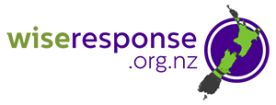How can New Zealand respond to ecological overshoot?
A Panel Discussion organised by Wise Response
When: 09:30 – 11:30 on 21 July 2023
Where: Room GBLT 4, Victoria University of Wellington
Panelists: Maria Bargh, Alison Dewes, Barry Ridler, Peter Victor
When: 09:30 – 11:30 on 21 July 2023
Zoom Address. all welcome:
https://vuw.zoom.us/j/92250866363
Background:
Earth is in overshoot. The cumulative impact of 8 billion humans, relentlessly pursuing economic growth, has stressed the planet beyond its limits. The symptoms include climate change, the biodiversity crisis, food and freshwater shortages. We can either do nothing and wait for the ‘crash landing’ or do something now to prevent an all-out crash.
Economic alternatives for escaping overshoot include a planned economic contraction. This would reduce the potential for further social, environmental and economic impacts. Other potential solutions include doughnut economics, regenerative economics and degrowth. ‘Green growth’ is often offered as a solution, but the continued emphasis on ‘growth’ is problematic. Aside from economic, physical and biological impacts of economic growth, another serious problem is growing inequality and finding an equitable way out of the current situation.
Many New Zealanders are already doing their bit. Joining the panel discussion are a farmer and a farm management specialist, who are working on ways that lowering inputs (such as energy and fertilizer) can actually increase economic benefits. Another important strand in the discussion is how cultural factors, including migration and colonisation, have been important in how New Zealand got to where we are now. Cultural factors are also critical in solving our current problems and finding a more sustainable way to live.
This panel discussion will range from the wider picture of problems caused by economic growth, in New Zealand and internationally, to local, personal solutions.
The panelists:
Dr Peter Victor, is Professor Emeritus at York University. He earned his PhD in economics from UBC and has worked for 50 years in Canada and abroad as an academic, consultant, and public servant specializing in ecological economics and alternatives to economic growth. He is the author of several books, including Managing without Growth, Herman Daly’s Economics for a Full World, and Escape from Overshoot. He has also published many articles in scientific journals on degrowth and related topics.
Dr Maria Bargh is Professor of Politics and Māori Studies. She completed her PhD in Political Science and International Relations at the Australian National University. Her research interests focus on Māori politics including constitutional change, Māori representation, Māori resource management economy including renewable energy, freshwater, mining and biodiversity. She has also written about hidden and diverse economies such as Māori in the private military industry. Maria is a member of numerous Boards and has broad governance experience with academic, NGO and Crown entities. She has supervised PhD and MA theses on topics including New Zealand politics, Māori land and environmental issues, Māori rights and identity and how Pākehā work as allies with Māori.
Alison Dewes is an experienced veterinarian (BVSc, Massey University, 1987) with a Masters in Biological Science (Ecology, Waikato University, 2015). She is the Owner/Director of the Sustainable Agriculture Consultancy (www.tipuwhenua.com) specialising in on-farm strategic advice inside limits. She is qualified in Advanced Nutrient Management for Agriculture, Adult Education, financial lending fundamentals and dairy leadership. Alison has 30 years’ farming experience herself in New Zealand and Australia, including Agribusiness roles with the Commonwealth Bank & Nestle, and Raukawa Charitable Trust as Sustainable Land Use advisor. She is presently a NEXT Foundation Freshwater Fellow (2020) – working with Bay of Plenty Regional Council on “One Health Catchment Projects”. She was awarded the NZ River Voice Award 2019.
Barrie Ridler is an Agricultural Analyst and the Director of E2M. He has a BSc Honours from Massey University, in Agricultural Economics and Farm Management, and developed the E2M Enviro-Economic Model. Barrie was a Senior Lecturer in Agricultural Systems for 11 years and also has many years of experience as a farmer and farm manager. Barrie uses his expertise in agricultural economics and farm management, applying marginal analysis to provide innovative solutions to any farm system. From an economic perspective a thorough understanding of profit maximisation is required to optimise a system but one cannot profit maximise without knowing a farm’s marginal cost and marginal revenue. A systems model (GSL model) utilises resource allocation to ensure “best fit” of resources to the outcome(s) required. This allows resource allocation that provides the best economic and environmental outcome. Marginal analysis is especially useful for making these kinds of decisions as it accounts for the non-linear nature of such systems.

